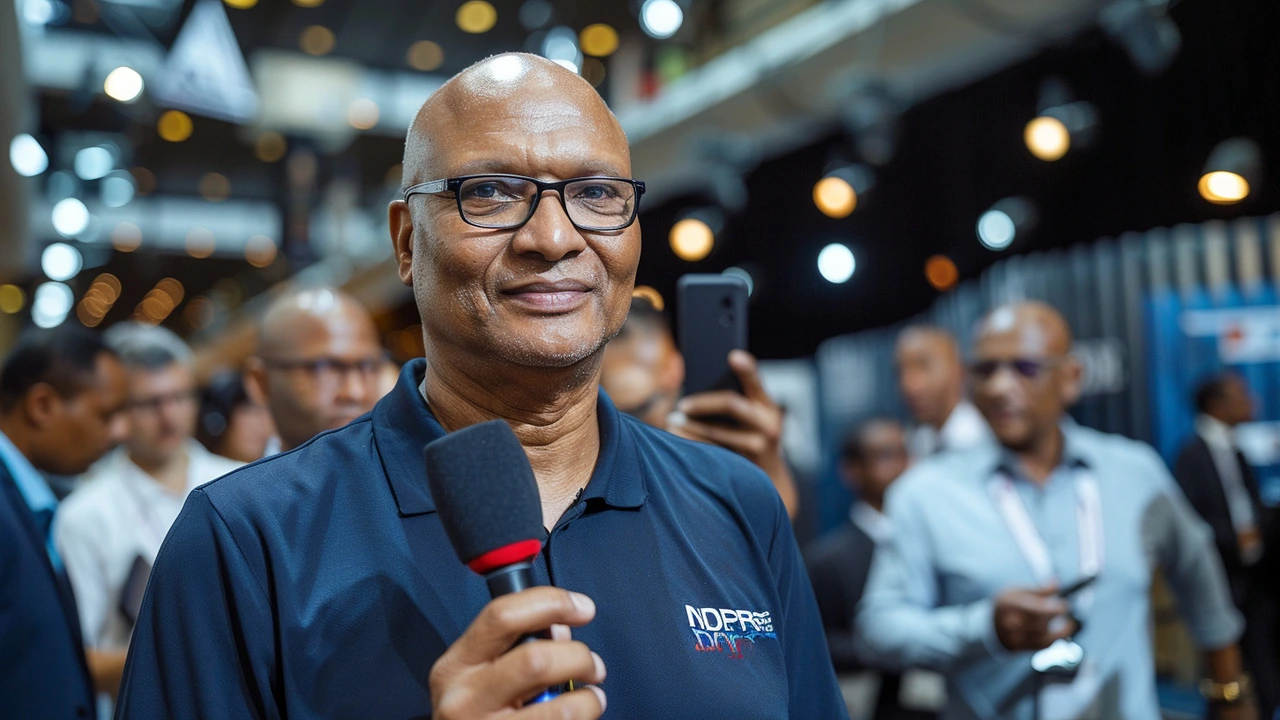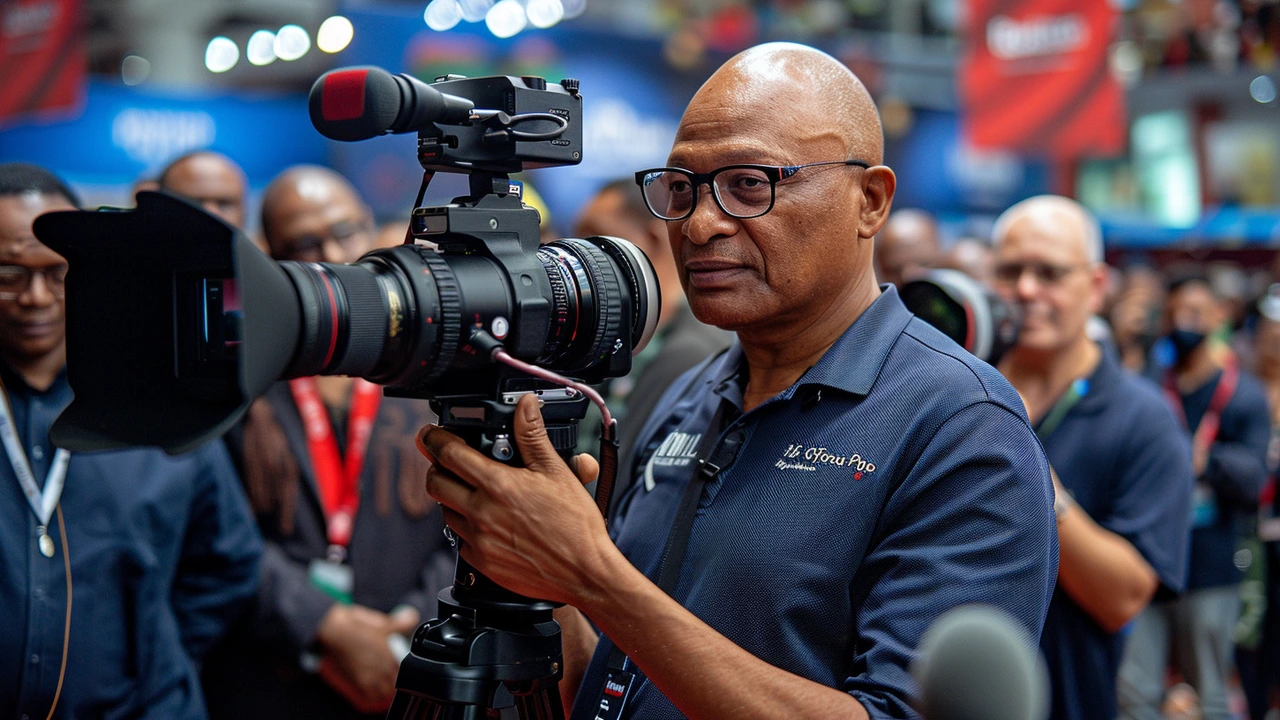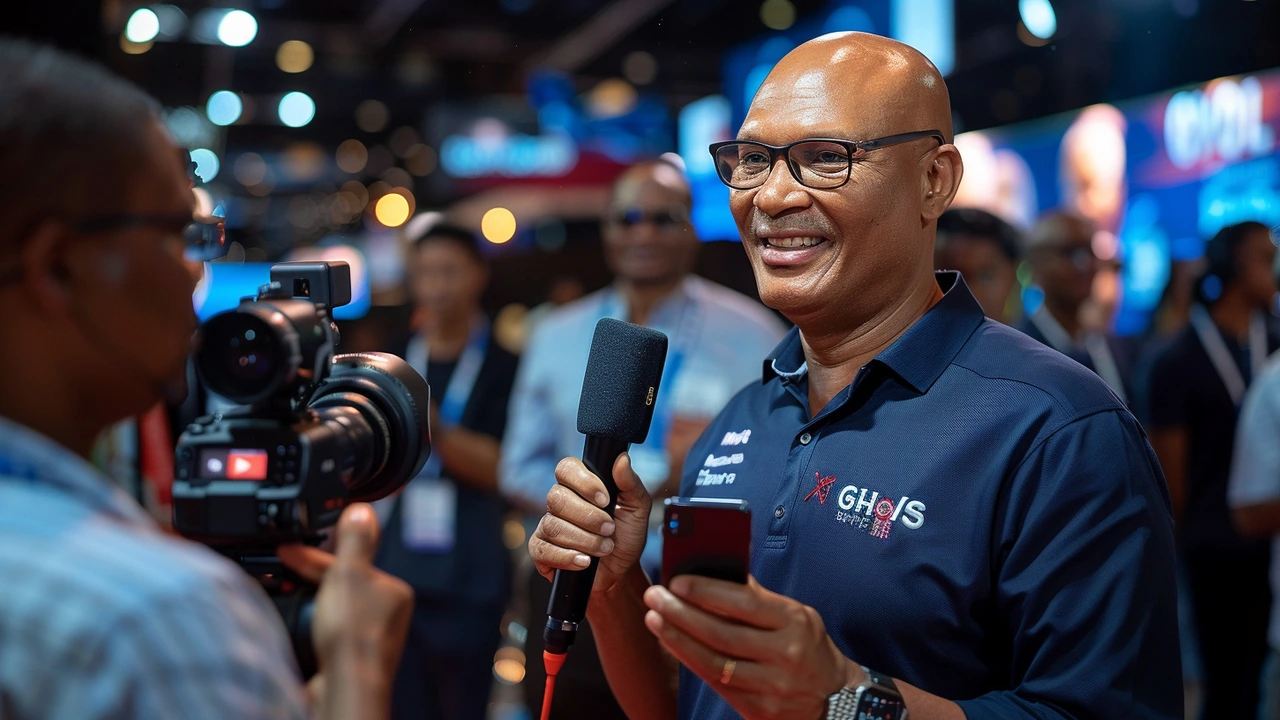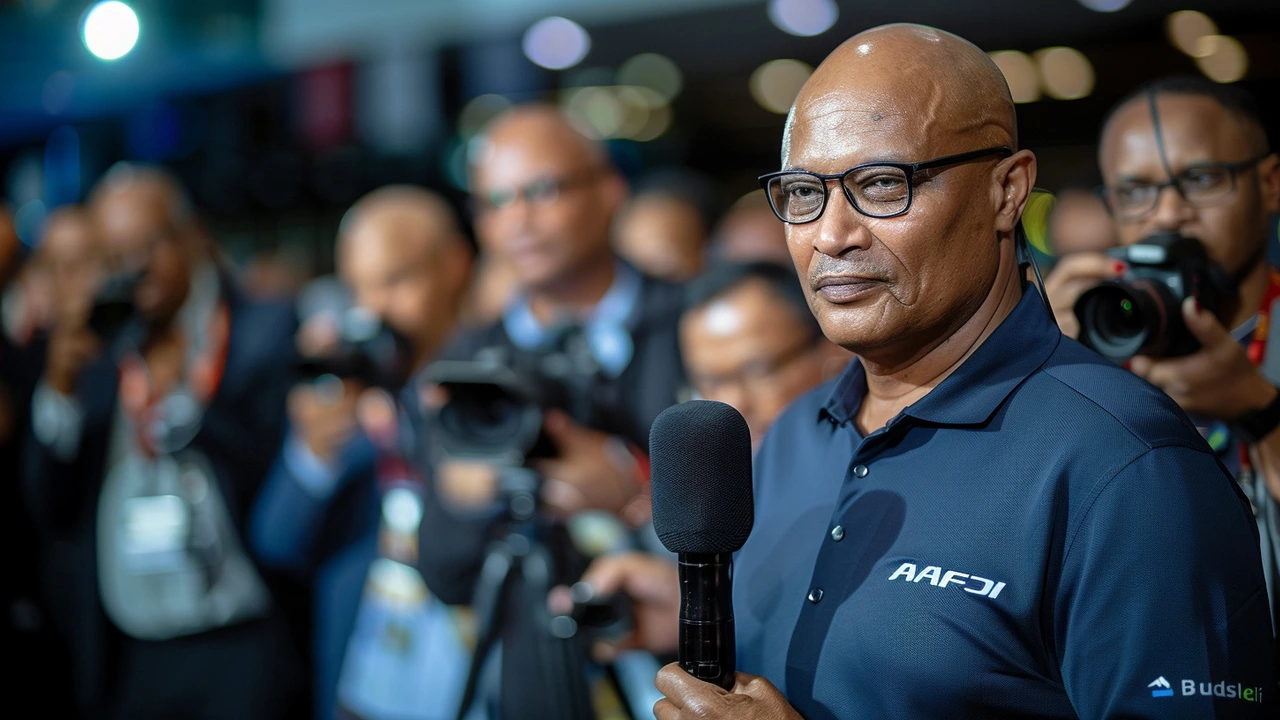Jabulani Khumalo's Leadership Challenge
In a move that underscores the turbulence within the newly formed MK Party, Jabulani Khumalo, the party's founder, is set to take his battle for leadership to the Electoral Court in the Gauteng High Court in Johannesburg. Khumalo is gearing up to challenge the Independent Electoral Commission's (IEC) decisions, protesting former President Jacob Zuma's claim to the leadership of the MK Party.
Khumalo's fight for reinstatement as the party leader comes in the wake of a contentious period. The MK Party, which Khumalo registered with the IEC, has been torn by internal disputes, primarily revolving around the unexpected rise of Zuma to a prominent leadership role within the party. Khumalo argues that his leadership is being wrongfully sidelined and that the foundation he built is being unduly overshadowed by Zuma’s influence.
The controversy finds its roots in the party's performance in the 2024 polls. The MK Party, standing for Military Cadres Party, made a marked impression on the national political landscape. Although it did not secure a majority, its performance was notably strong in the provinces of KwaZulu-Natal (KZN) and Mpumalanga. This success has intensified the internal power struggle, making the stakes higher for all party members involved.

The Roots of Contention
Jabulani Khumalo, a seasoned activist and political figure, has long been a vocal critic of corruption and mismanagement within South African politics. His vision for the MK Party was to craft a platform for ex-combatants and like-minded individuals to continue their fight for justice in the new democratic order. Khumalo has consistently portrayed himself as a soldier for the people, committed to the ideals of equality and fairness.
On the other hand, Jacob Zuma, with his extensive political history and notable influence, brings a strong persona to the table. Zuma's affiliation with the party was viewed by some as a strategic move to galvanize support using his widespread recognition and established political clout. His involvement, however, has been seen by others within the MK Party as an overreach, overshadowing the grassroots roots and original leadership.
The ensuing power dynamic between Khumalo and Zuma reflects the complex, often fractious landscape of South African politics. This battle for control not only impacts the MK Party's internal cohesion but also its public image and political viability in the upcoming elections.
Implications for the Party’s Future
The upcoming court case will, undoubtedly, be a determinative moment for the MK Party. Supporters and detractors alike are watching closely, as the court's decision will have lasting ramifications. If Khumalo is reinstated, it could substantially alter the party's trajectory and realign it with his original goals and vision.
Conversely, if the court upholds Zuma's leadership, it could fortify a different pathway for the MK Party, one that aligns more closely with Zuma’s extensive experience and political strategies. This decision will significantly influence both the party’s internal policies and its electoral strategies moving forward.
Moreover, the outcome of this dispute is poised to affect the broader political constituency in South Africa, especially in regions like KZN and Mpumalanga where the MK Party has marked significant electoral achievements. The decision will potentially reshape alliances and rivalries within the vibrant and often contentious political landscape of the country.

The Role of the IEC
The Independent Electoral Commission (IEC) holds a pivotal position in this drama. As the body responsible for overseeing elections and party registrations, its decisions carry substantial weight. Khumalo’s dispute with the IEC centers on the handling of the leadership issue and the processes that led to Zuma’s current role in the party.
The IEC's role is to ensure that all political processes are conducted fairly and transparently. Khumalo's challenge is also critical to the IEC's credibility and its perceived impartiality. Should the court find that the IEC conducted itself improperly or failed to uphold its standards, it could lead to broader questions about the commission's effectiveness and fairness in overseeing South Africa’s electoral systems.

The Political Climate
In the larger context of South African politics, this leadership struggle within the MK Party is emblematic of the ongoing battles for power and influence that characterize the nation’s political arena. South Africa’s political landscape, known for its vibrant multi-party system, often sees fierce contests for control and representation.
Jabulani Khumalo’s challenge is significant in this broader context. It highlights the struggle for legitimacy and voice in a political environment that is continually evolving. As political actors vie for influence, the methods and decisions of bodies like the IEC come under increasing scrutiny.
This case encapsulates a microcosm of the intense and dynamic nature of South African democratic processes. It brings to the forefront the challenges of leadership, representation, and the perpetual quest for political fairness and justice.
As the court date approaches, all eyes will be on Johannesburg, waiting to see how this critical chapter in the MK Party’s history will unfold and what its consequences will be for the broader South African political landscape.


Evangeline Ronson
June 4, 2024 AT 11:39Cate Shaner
June 5, 2024 AT 08:35Thomas Capriola
June 5, 2024 AT 10:49Rachael Blandin de Chalain
June 6, 2024 AT 02:42Soumya Dave
June 6, 2024 AT 13:22Chris Schill
June 7, 2024 AT 11:47cimberleigh pheasey
June 7, 2024 AT 18:43